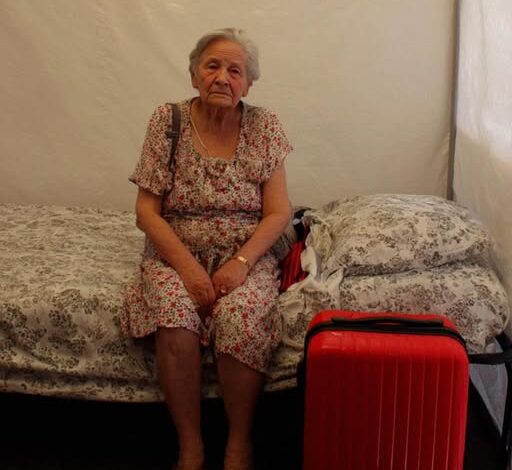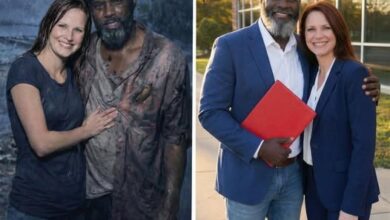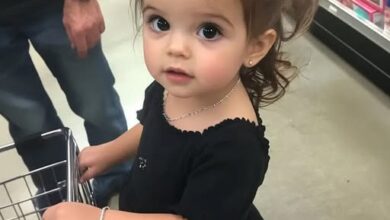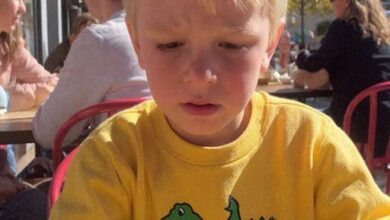
My DIL Kicked Me Into a Shelter While My Son Was Away on a Business Trip – But She Never Expected Him to Find Out
I never pictured myself at sixty-seven curled on a shelter cot, listening to strangers breathe in the dark. But three days there changed everything between my son and me.
It started after my hip replacement. The surgeon had been blunt: six weeks of help, minimum. Stairs, cooking, even getting dressed would be tricky. When my son, Daniel, came to take me home, he didn’t bother pretending there was a decision to be made.
“Mom, you’re staying with us,” he said, easing me into the car. “Guest room’s ready. Fresh sheets, extra pillows—the works.”
“I don’t want to be a burden,” I murmured.
He squeezed my hand. “You raised me alone after Dad died. Let me return the favor.”
His house on Redwood Street was spotless, full of soft light and straight lines. My daughter-in-law, Claire, had done the guest room like a hotel—flowers on the nightstand, my favorite books stacked neatly. On the surface, everything was perfect.
Underneath, I caught hairline cracks. The clipped smile when Daniel walked me up the stairs. The careful sigh when I asked for water. The way “Of course, Diana” sounded like a door shutting. I told myself I was oversensitive. Recovery makes you second-guess yourself.
I tried to be easy. I stayed in my room, kept the TV low, thanked Claire for every small thing. Daniel did the heavy lifting—meds, appointments, shower chair. “You’re healing fast,” he’d say, proud and kind. Claire would hover in the doorway, arms folded, saying nothing while he was there.
Then Daniel had to travel. “Three days,” he said, wincing. “I hate the timing.”
“I’ll be fine,” I lied. “You go impress your client. Claire will be here.”
He kissed the air like he did as a boy and left. The house felt colder the moment the door clicked.
The first day, Claire kept up the performance. On the second, the mask slipped. I asked if she could grab my sweater from the living room. She came to the door flushed, jaw tight.
“Do you ever stop asking?” she snapped.
“I’m sorry,” I said, truly startled. “I didn’t mean—”
“You didn’t mean to be a burden? Because that’s what you are. You’ve been here over a week taking up space, turning everything into a production.”
“The doctor said—”
“I don’t care what the doctor said.” Her voice rose. “Daniel runs around like your valet and I’m stuck with the fallout. Is this why I got married? To babysit his mother?”
The words landed like stones. I knew we weren’t close, but hatred? I stared at the blanket and said, “It’s temporary.”
She laughed, bitter. “Sure. Another week? A month? Let’s be honest, Diana—you’re old. You’re weak. It’s not coming back. You’ll always be dependent.”
I cried quietly that night, trying to be quiet about even that.
The next morning she came in holding my small suitcase. “Get dressed,” she said without meeting my eyes.
“Where are we going?”
“You’ll see.”
She drove in silence to a low building with a weathered sign: Pine Creek Community Shelter. For a second I thought she was dropping off donations. Then she parked and looked straight at me, eyes like ice.
“This is better. They’ll take care of you. You didn’t want to be a burden, remember?” She’d already planned the cover story. She’d tell Daniel I was showering when he called, that I chose to go home early when he returned. “Don’t make me the villain because you can’t take care of yourself.”
“Daniel will never forgive this,” I whispered.
“Only if you tell him,” she said, and opened my door. “Get out.”
Inside, a woman named Rosa helped me fill out forms, voice gentle, eyes knowing. “Family can be complicated,” she said. “You’re safe here.” My roommate, Betty, had been evicted when her building sold. “First time?” she asked, and when I nodded, said, “It gets easier.”
That evening my phone rang. “Mom! Pain okay? Evening meds?” Daniel’s voice was all concern and kindness.
“I’m fine,” I said, swallowing my humiliation.
“Claire said you had a quiet day.” He sounded relieved. “One more day and I’m home.”
“I love you,” I managed.
I didn’t sleep. Every cough, every footstep echoed. By morning, I couldn’t hold it in. I called him.
“Mom, you sound off. What’s wrong?”
“I’m not at your house,” I said. “I’m at Pine Creek Community Shelter.”
Silence, then his voice snapped sharp. “Give me the address. I’m coming now.”
He arrived in a suit, hair mussed from the plane, eyes scanning until he found me. His face crumpled. “Mom.” He held me like I was something precious. “I’m so sorry. I didn’t know.”
On the drive, his jaw was tight. “Please don’t do anything you’ll regret,” I said.
“The only thing I regret is leaving you with her,” he said. “We’re making one stop.”
We pulled up at a small downtown legal office. “Wait here,” he said, and disappeared. Twenty minutes later he came out with a slim box and a decision carved into his face.
At the house, he squeezed my hand. “Whatever happens next, you’re my priority.” He stepped inside alone; I stood by the open window and listened.
Claire sat on the couch with a glass of wine, relaxed. “You’re back early!” she said brightly. “How was the meeting?”
“Productive,” he said evenly.
“Did you bring me anything?” she asked, playful. “That bracelet?”
He took the box from his briefcase and handed it over. She flipped it open, expecting sparkle. Her smile died.
“What is this?”
“Divorce papers,” he said. “Consider them a souvenir.”
She laughed weakly. “You’re joking.”
“No.” His tone never lifted. “Maybe start by telling me where my mother is.”
“She left yesterday,” Claire said quickly, pasting on the old smile. “Felt better. Wanted to be independent.”
“That’s odd,” Daniel said. “Because I just picked her up from the shelter you dropped her at.” He turned and called, “Mom?”
I stepped in. Her glass slipped from her hand and burst on the carpet. She stared at me like I was a ghost.
“So help me understand,” Daniel said, still calm. “My mother—post-op, barely walking—just… checked herself into a shelter?”
Claire’s mask burned away. “Fine. Yes. I took her. Are you happy?” The heat flooded back into her voice. “She was driving me insane. All day it was ‘Claire, help me’—I’m not her nurse.”
“She had major surgery,” he said.
“She’s not my responsibility,” she snapped. “I married you, not your mother.”
“She needed help for a few weeks.”
“A few weeks?” she scoffed. “She would have stayed forever. You didn’t see it because you’re blind where she’s concerned.”
“You put my mother in a shelter,” he said. Each word landed like a nail.
“Where she belongs,” she shot back. “I’m your wife. I should come first. Not some old woman who can’t even—”
“Pack your things,” he said. “I want you out.”
“You can’t be serious.” She was furious now. “No one will put up with you and your precious mommy.”
“Get out,” he said, and there was no mistaking the line in his voice.
She slammed the door so hard the windows rattled. The house went very still. Daniel turned to me, the anger draining, sorrow rushing in behind it. “It’s over.”
“I never wanted this,” I said, aching for him.
“You didn’t do this,” he said. “She did.” He helped me settle in the guest room again, and when he tucked the blanket around me, his eyes shone. “I should have protected you.”
“You did,” I said, holding his face in my hands. “You are.”
Three weeks later, my hip was behaving and I was back in my own small house. Daniel comes on weekends; we talk every night. He pays more attention to red flags now, but he’s steadier, too—clear about who he is.
“Do you ever regret it?” I asked over dinner. “Choosing me over her?”
He looked at me like I’d asked if he regretted breathing. “There wasn’t a choice,” he said. “She made it when she threw you away.”
“You loved her,” I said gently.
“I thought I did,” he said. “Real love doesn’t kick someone to the curb when they’re vulnerable. It doesn’t call people you care about burdens. Whatever that was, it wasn’t love.”
We ate in companionable quiet for a while. Then he added, almost matter-of-fact, “Any woman who can’t respect you doesn’t belong in our family.”
Here’s what I know now: those three days were humiliating and frightening, but they showed me the man my son grew into. Some people say a husband should always choose his spouse. Maybe. But a spouse who would abandon a recovering elder at a shelter chose herself first. Daniel simply saw that clearly and acted accordingly.
Cruelty tried to fracture us. It didn’t. It made us stronger.




